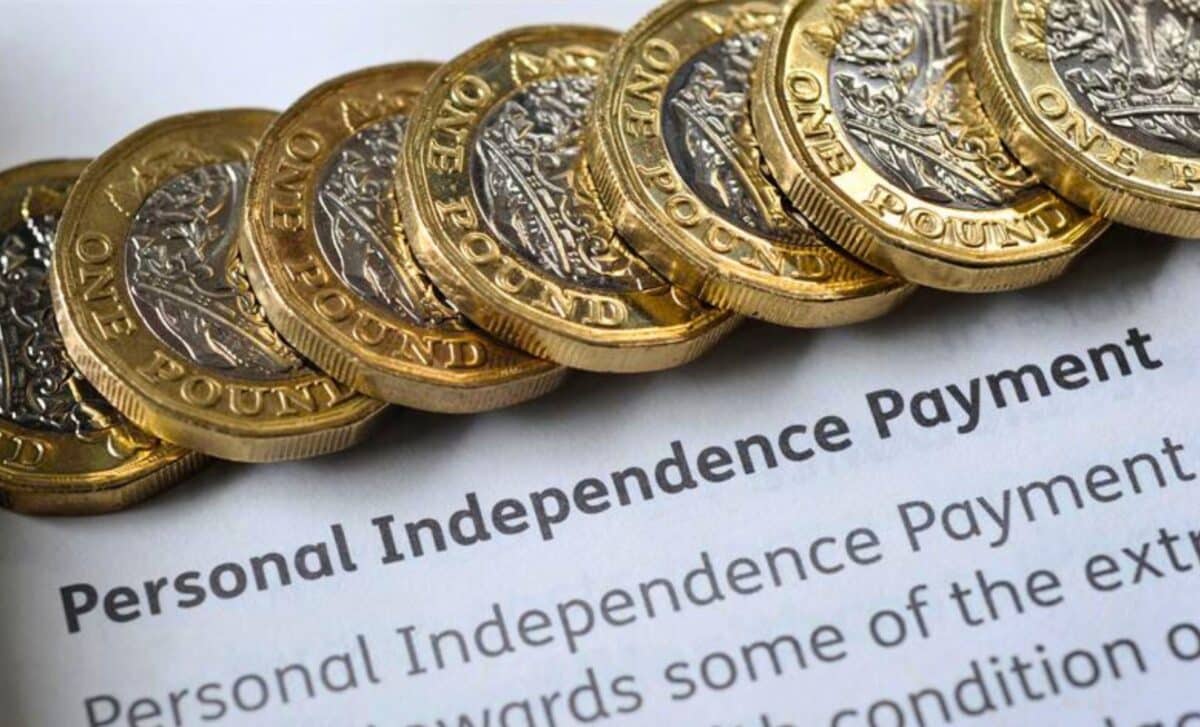People with a long-term sickness, disability, or physical or mental health condition who file a new claim for Personal Independence Payment (PIP) this month and are approved may earn up to £2,764 by the end of September.
Updates on PIP and ADP Processing
According to the current Department for Work and Pensions (DWP) numbers, 51.7% of all new PIP claims are dealt with within the goal time of 75 working days, or just under 15 weeks.
This means that everyone claiming PIP this month could get their first payment by the end of September. This may not even be the first payment of the disability benefit, as it is paid four weeks in advance; it might be 15 weeks worth of backdated payments.
PIP can’t be backdated, although payments begin on the day the claim was lodged to cover the DWP’s handling period. A successful PIP claim is worth between £28.70 and £184.30 per week.
The number of people receiving PIP has reached an all-time high, with almost three and a half million claimants all over Great Britain, including 218,859 in Scotland. However, the current figure excludes persons in Scotland who have transitioned from PIP to Adult Disability Payment (ADP).
According to Social Security Scotland, 192,575 people are now receiving ADP, including 109,385 previous PIP claimants whose awards have been moved from the DWP to the devolved IT system. The transition from PIP to ADP is expected to be finalised by the end of 2025.
PIP or ADP supports about 540 health disorders; however, the list is not definitive and includes an ‘unknown’ category.
Five most frequently reported PIP health conditions
The following are the primary debilitating conditions recorded by the DWP at the end of January 2024:
| Psychiatric disorder | 1,318,073 claimants (37%) | This includes mixed anxiety, stress, depressive and mood disorders, OCD, and cognitive disorders. |
| Musculoskeletal disease (general) | 691,660 claimants (20%) | This includes muscle or joint pain and arthritic conditions. |
| Neurological disease | 434,867 claimants (13%) | This includes muscular dystrophy, epilepsy, headache, multiple sclerosis, neuropathy, and other movement disorders. |
| Musculoskeletal disease (regional) | 410,511 claimants (12%) | This includes neck, back, shoulders, elbow, wrists, hands, hip, knee, and ankle pain. |
| Respiratory disease | 139,059 claimants (4%) | This includes asthma, diseases of the upper respiratory tract, pulmonary fibrosis, and cystic fibrosis. |
At the end of January, one-third (36%) of all claims with entitlement to PIP received the highest award. An award for PIP or ADP may also result in additional assistance with housing costs, Council Tax, other benefits, and reduced use of public transport.
Disabling Conditions Identified by DWP
These are the main disability categories, which serve as an umbrella term for 547 additional diseases. This list merely provides an overview of ailments, disorders, and diseases, as well as how the DWP lists the most common disability claimed for:
- Haematological Disease.
- Infectious disease.
- Malignant disease.
- Metabolic disease.
- Psychiatric disorders.
- Neurological disease.
- Visual disease.
- Hearing disorders.
- Cardiovascular disease.
- Gastrointestinal disease.
- Diseases of the liver, gallbladder, and biliary tract.
- Skin disease.
- Musculoskeletal disease (general).
- Musculoskeletal disease (regional).
- Autoimmune disease (connective tissue disorders).
- Genitourinary disease.
- Endocrine disease.
- Respiratory disease.
- Multisystem and extremes of age.
- Diseases of the immune system.
- Unknown or missing.
Who Might Qualify for PIP or ADP?
To qualify for PIP or ADP, you must have a health condition or handicap where you:
- Have had difficulties with everyday life or getting around (or both) for three months.
- Expect these issues to endure for at least nine months.
You typically need to have lived in the UK for at least two of the previous three years and be present when applying.
In addition to what is covered above, if you receive or require assistance with any of the following as a result of your condition, you should consider applying for PIP or ADP.
- Food preparation.
- Medication management.
- Toilet use.
- Dressing and undressing.
- Engaging and communicating with other people.
- Reading and analysing textual information.
- Making financial decisions.
- Organising travel routes.
- Moving around.
DWP, or Social Security Scotland, will examine how hard you find daily living and mobility tasks. For each task, they will assess:
- Whether you can do it safely.
- How long it can take you.
- How often your condition impacts this activity.
- Whether you need assistance to do it, from a person or using additional equipment.
How are PIP and ADP Paid?
PIP and ADP are typically paid every month unless you are terminally ill, in which case it is paid weekly. The payment will be transferred directly into your bank, building society, or credit union account. ADP is paid at the same rate as PIP.
PIP and ADP Payment Rates 2024/25
You will need an evaluation to work out the level of financial assistance you will get, and your rate will be regularly assessed to make sure that you are receiving adequate support. Payments are made every four weeks.
PIP is made up of two components:
- Daily living
- Mobility
Whether you get one or both of these and how much depends on how severely your condition affects you.
You will be paid the following amounts per week depending on your circumstances:
Daily living
- Standard rate: £72.65
- Enhanced rate: £108.55
Mobility
- Standard rate: £28.70
- Enhanced rate: £75.75
How You Are Assessed
An independent healthcare professional will assess you to assist the DWP in determining the amount of financial support you require for PIP.
In-person consultations for medical benefits are available, as well as video calls, telephone, and paper-based assessments; however, it is crucial to note that the health professional and DWP decide which method of assessment is most suited to each claimant. You may learn more about DWP PIP assessments here.
Adult Disability. Payment assessments will no longer include face-to-face assessments, unless the claimant prefers it.
How do you make a claim for PIP?
To make a new claim, you’ll need to contact the DWP. You will find all the information you need to apply on the GOV.UK website.
Before calling, you will need:
- Your contact details.
- Your date of birth.
- Your National Insurance number.
- Your bank or building society account number and sort code.
- Your doctor or health provider’s name, address and phone number.
- Dates and addresses for any time you’ve spent abroad, in a care home or hospital.
How to apply for ADP
You can apply for ADP using the phone, by post, or face-to-face. To find out more or submit an application, visit the dedicated pages on mygov.scot or call Social Security Scotland on 0800 182 2222.









